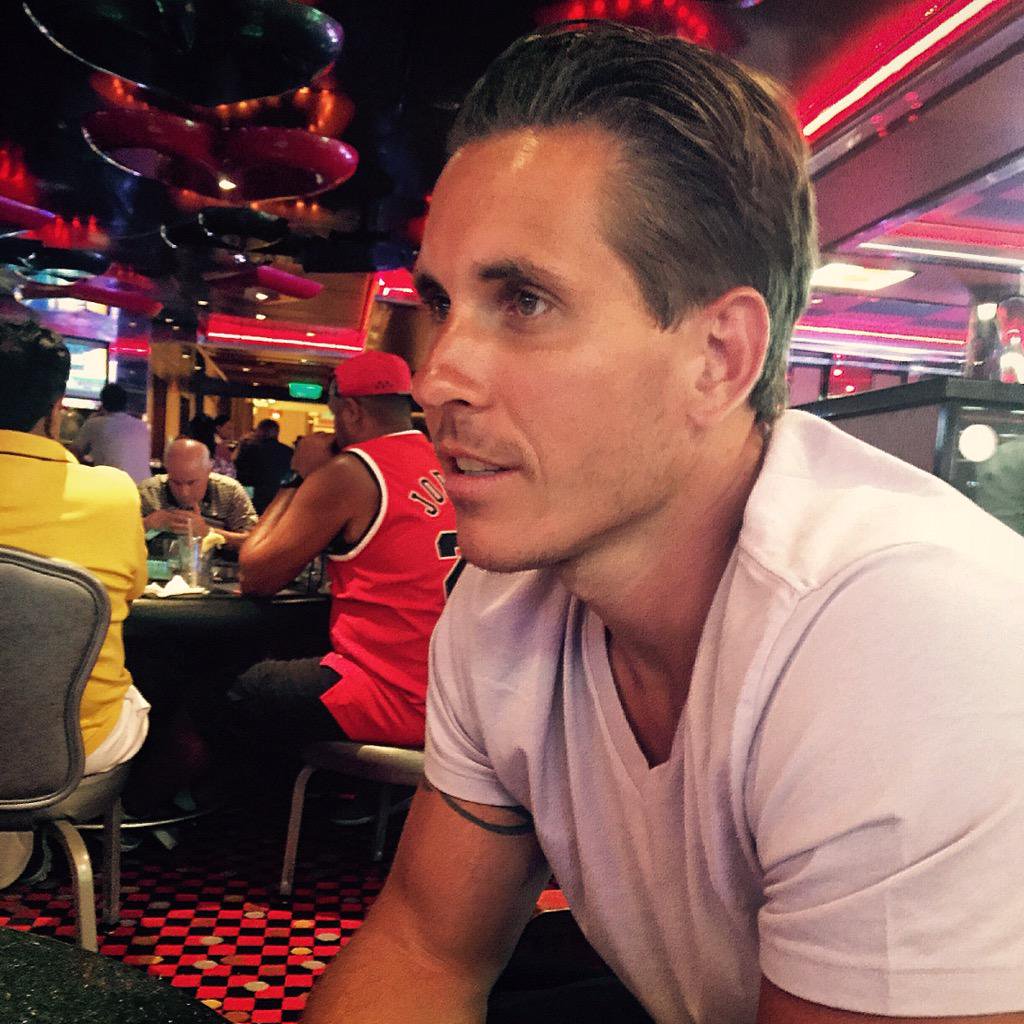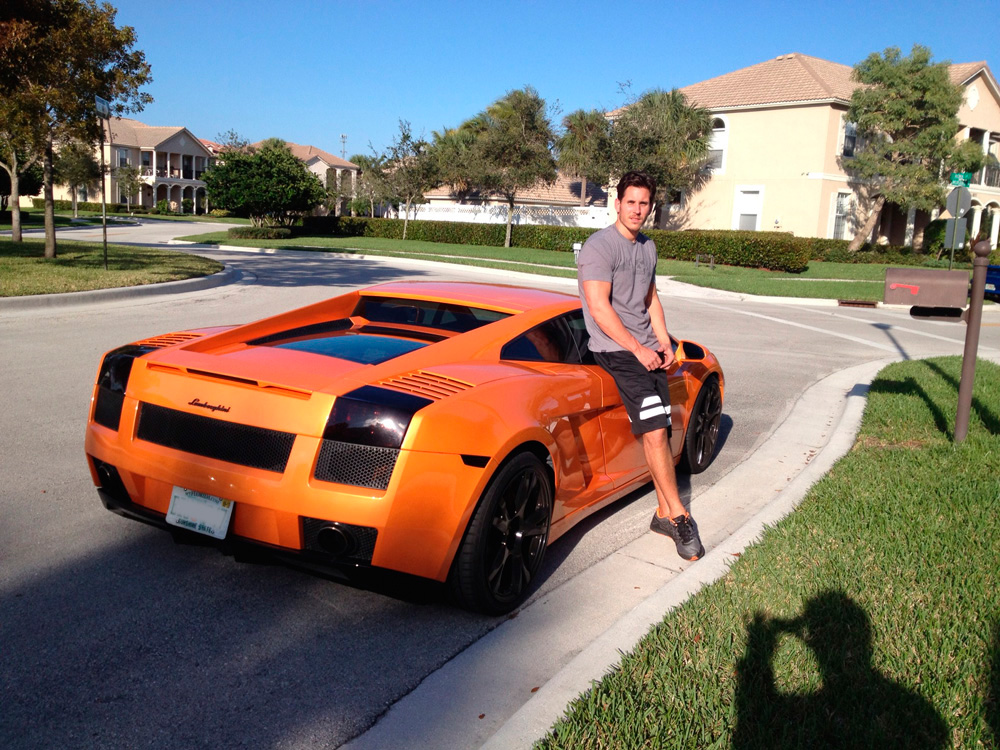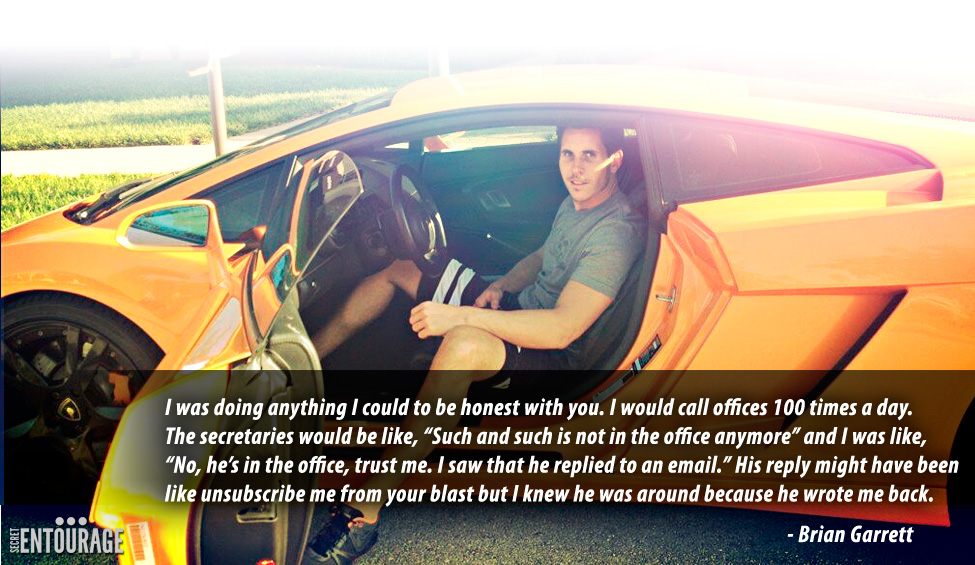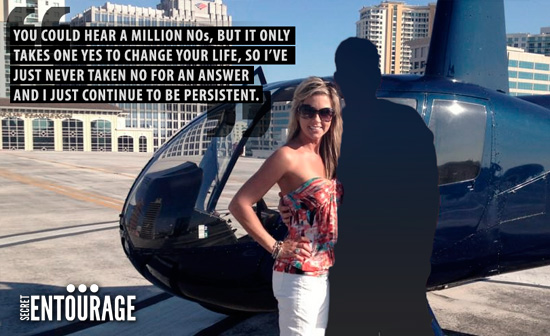
I’ve always been a computer guy dating back to middle school around when AOL, Prodigy, and all these internet service providers came out. I started doing internet marketing and email marketing for different clients, from Fortune 500 companies, to adult sites, to “quit smoking cigarettes” companies. All kinds of stuff basically, sending out millions of emails a day. A lot of them were affiliate programs. I built a database and had signed up a bunch of other mailers underneath me and gave them a smaller percentage so I was keeping the rest, which really got me going and thinking like an entrepreneur. That was during high school times when I was probably 15 years old. I did that through all of high school and made good money off that but eventually got a job.
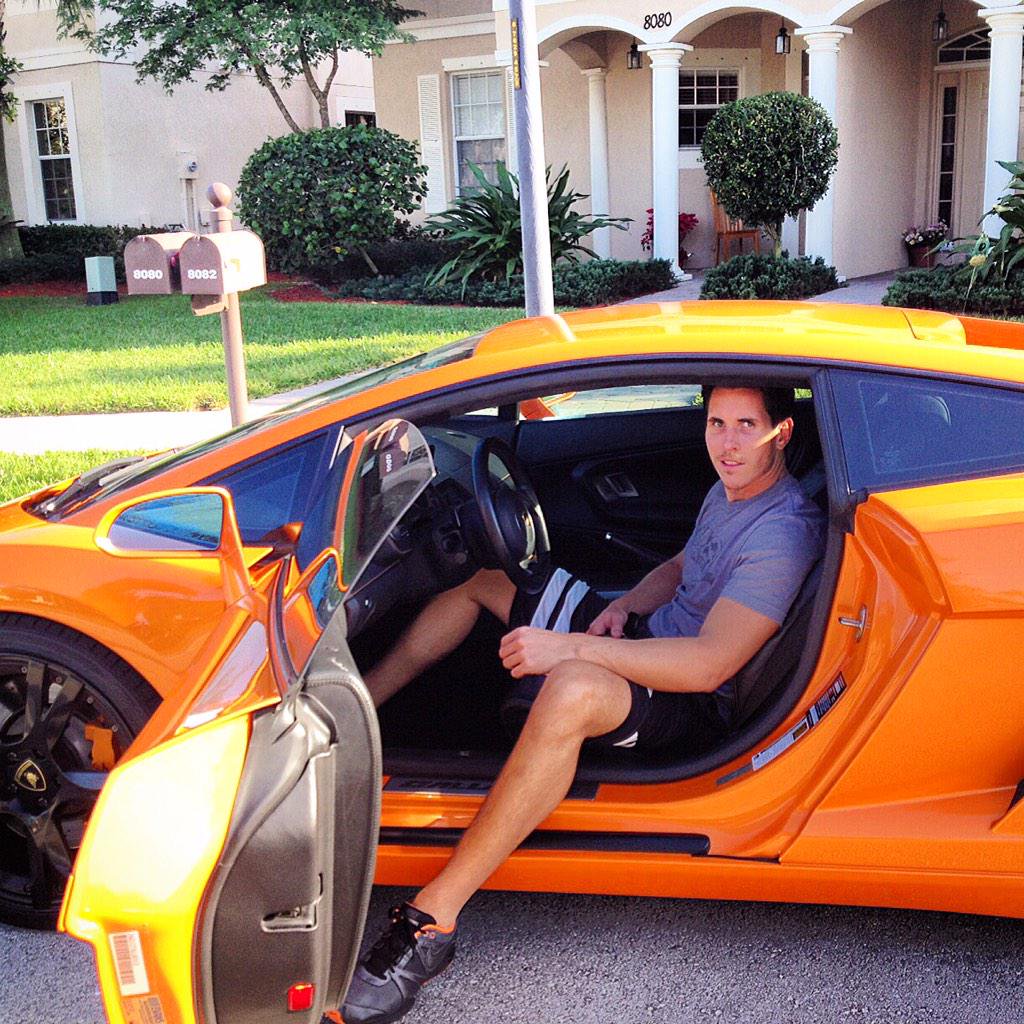
However, that business got really shady and there started to become a lot of lawsuits because of spam mailing. I knew a guy that lived locally that actually had gotten into a lawsuit over that. He had like nine computers set up at his house sending emails all day. Once I saw that happen, I moved in a different direction and didn’t want to be caught up in any of that. That’s how I really got into the whole email marketing stuff to begin with and I just had a computer background all along. I just took that knowledge and experience and moved it towards the entertainment business in 2006 when I started my company, Future Star.
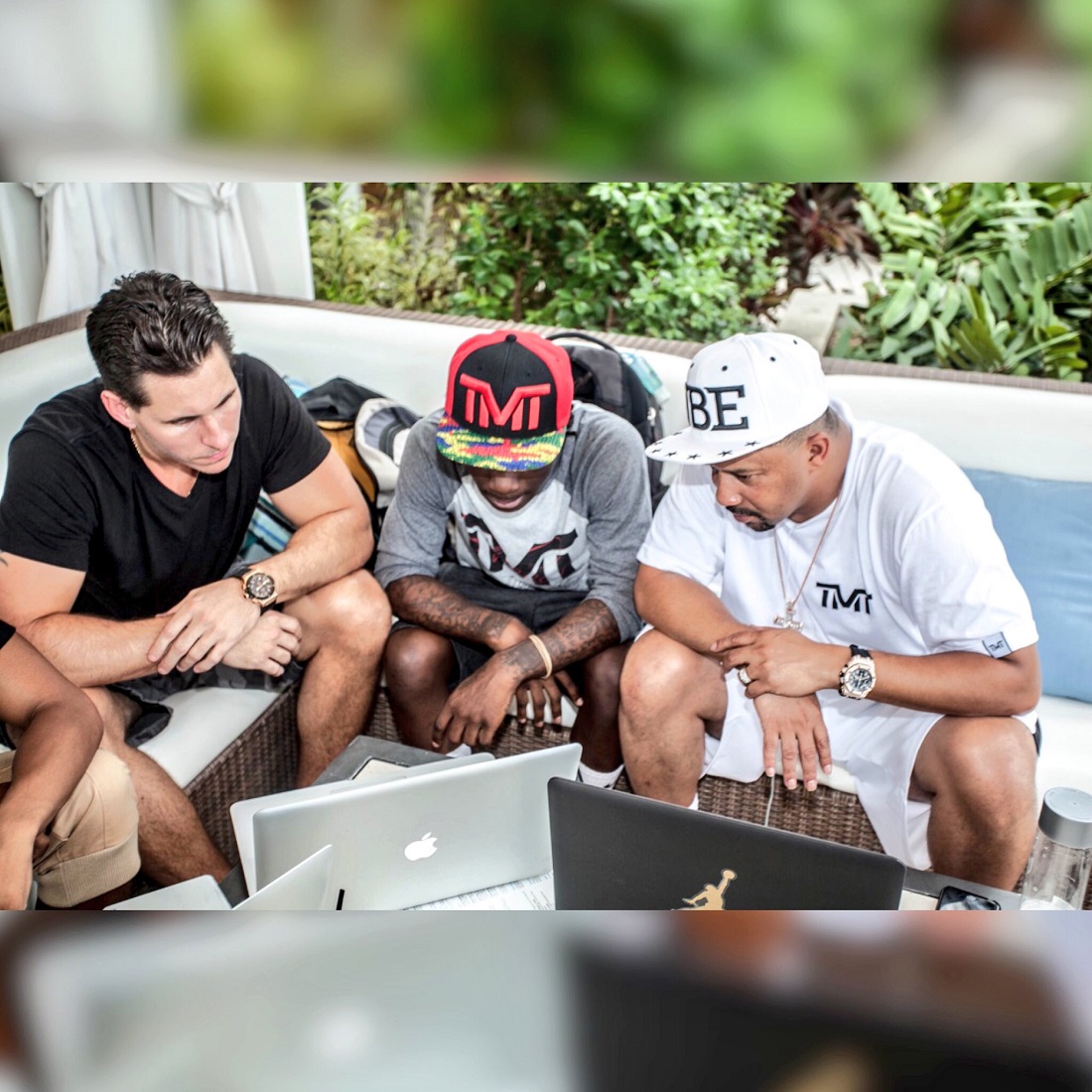
I would sit in AOL chats and started seeing people advertising for different companies and it piqued my interest. I started to research it and came across a company called Bulk Barn. They are out of business now but they were basically a message board for email marketers. I was reading what people were doing and the type of money people were making. Mailers back then for products with affiliate programs operating on a large scale were making $5,000, $10,000, $20,000 a week, if not more, depending on stuff they were doing. I’m 15 years old sitting in my room like, “If I could get a little piece of that, that would be great.” Almost all the kids I know were going to Subway after school for work so I was trying to figure out how I can make some decent money online.
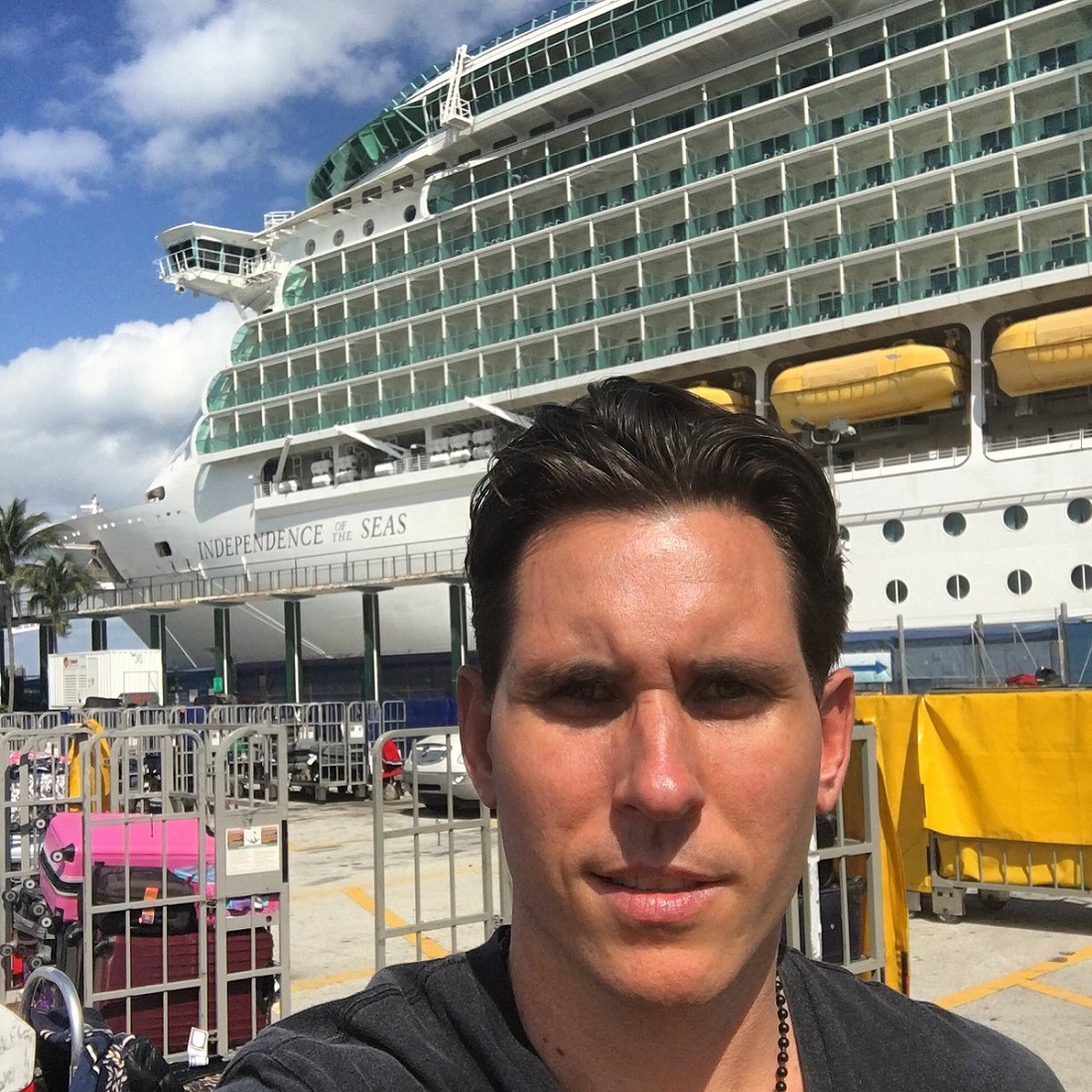
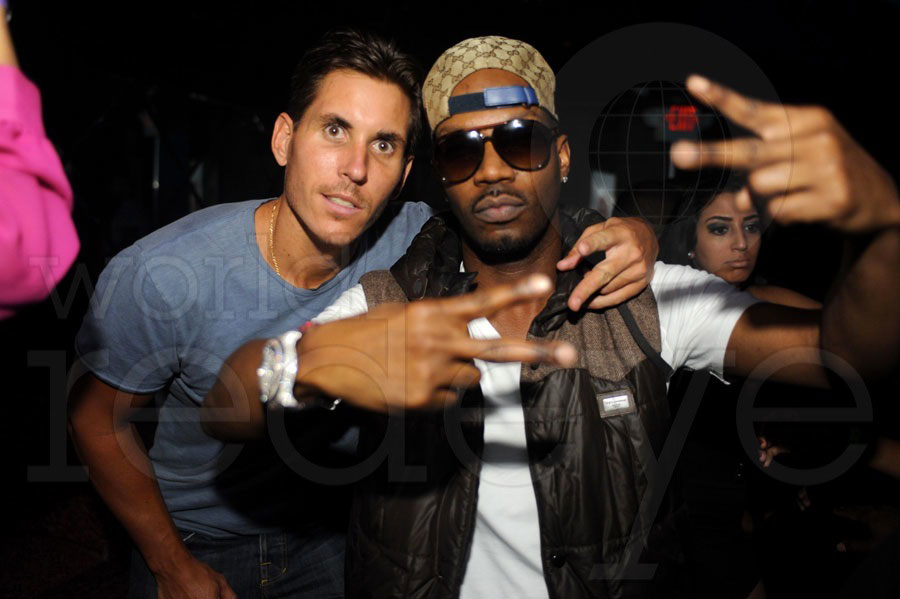
Again, I was about 17 years old at this point going on trips to the Atlantis Resort in the Bahamas and eating at the Melting Pot three nights a week down here in Florida at a young age. At that point, I was making somewhere around $3,000 a week. It was short lived though because things got pretty iffy in that business and I got out of there like I had said before. But during the time that I was actually in it and rolling strong like that, at that age especially, even just to be getting a $2,000 check here and there, makes you seem like you’re on top of the world at that point.
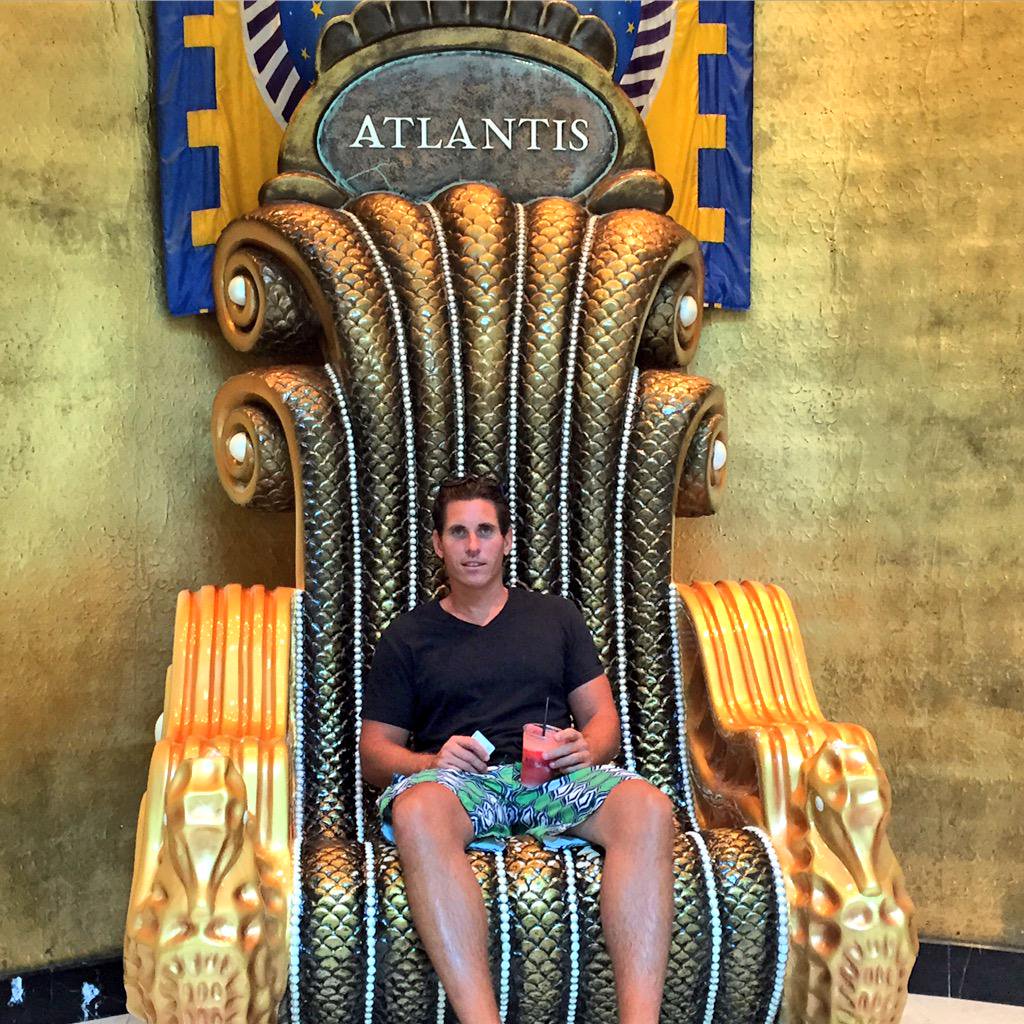
To be honest I blew through the money quicker than I got it. At that point it’s one of those things where I didn’t really appreciate fast money. Rappers and athletes that I work with now, they throw it away on strip clubs, jewelry, cars, this and that. They blow it as fast as it comes in because they think it’s going to last forever. I was young and had that same mentality, I was trying to show off at school and have the coolest car. I put the 20” rims on the car with the low profile tires and a sound system with five TVs. I was going on trips, dinners, and stuff. I was blowing through it just as fast as I had it but my mentality was if I could make it then, I knew I could do something on a grander scale when I really got serious and grew up.

After high school I went to Tallahassee Community College for two years and then I was going to transfer to Florida State after that. Two years at college is when I decided, as an entrepreneur, you always have the mindset that you can make money doing anything that you put your mind to and commit to. I mean if there’s a will, there’s a way. If you can envision it, you can make it a reality.
I had already done a bunch of email marketing, and made some decent money so the school thing was never really for me. In high school, I never wanted to be there. I would always try and get out whenever I could or not be around. I’d rather be home on the computer researching stuff and networking, learning and programming, and coming up with different ways to make money. For me personally it was all about the power of the internet and finding ways to capitalize off it from the very, very beginning, even at a young age.

I moved up to Nashville after my second year in Tallahassee where my family lived and my brother was producing music at that time. He always had a passion for music and was producing and writing songs. I was hanging out in the studios and everyone that was in the studio saw my business sense and hustle, and the ideas I would come up with on ways that they can market themselves or brand themselves. They were like, “Oh you’d do good in the music industry you should start a company”. I’m a big fan of music and always have been so I just ran with that. Me and my brother sat there one night and tried to think of a company name or a name to do business as. He was like, “Future Star.” I did all the research. It was available. I was like, “That sounds cool. It’s catchy. It rolls off the tongue easily.” So in April 2006, I started Future Star and that’s how it was started really.
When I first started it, I looked up to all the idols and all the icons in music, and said I’m going to be the next music mogul. I want to be the next Jimmy Iovine, Clive Davis, Diddy, Jay or whoever. I wanted to be that next big thing and I said, “I’m going to be that somehow someway.” I’m still working to be that but I use my internet powers to help brand artists and to help them get music out and establish my company. I branded myself as the “online marketing company” when I saw everything starting to go digital in the music business so I got that reputation as the “go to guy” from an early point on.

In 2006 I was going on DJ message boards and networking with upcoming artists and DJs and started to build a little reputation. I’d publish links on the internet of songs for the DJs to download and I started to build a little name for myself and a little following. Again, I’ve been a computer guy my whole life and saw that music was becoming mostly digital and CD sales were declining. People weren’t actually going to the stores anymore to buy physical hard copies of music. I said, “Okay. I used to do email marketing for all these other people and companies in high school. What if I can build a little email list to DJs and start sending out artists’ music?” At this time, people were still physically packing CD singles and mailing them to radio stations and stuff.


Luckily we’ve had the chance to work with LOTS of artists, athletes, and other executives some of which immediately come to mind are – Diddy, Lil Wayne, Birdman, Ray J, Alicia Keys, Rick Ross, Three 6 Mafia, Young Jeezy, Mya, Trey Songz, Chris Brown, Aaron Carter, Akon, T-Pain, Chamillionaire, Timbaland, Flo-Rida, Nelly, Scott Storch, Lloyd, Busta Rhymes, Fabolous, Jadakiss, DMX, Trick Daddy, Soulja Boy, E-40, The Game, Jazze Pha, Ciara, Yung Joc, Usher, The Dream, Juvenile, Keri Hilson, Polow Da Don, Ne-Yo, Lil Jon, Paul Wall, Lil Scrappy, LL Cool J, Lupe Fiasco, Keyshia Cole, MC Lyte, Young Buck, Murphy Lee, Pitbull, Slim Thug, Swizz Beatz, Tyrese, Yung Berg, Machine Gun Kelly, Floyd Mayweather, Vontae Davis, Bryant Mckinnie, Steve Francis, Antonio Tarver, Andre Berto, Sean Weatherspoon, Asante Samuel, John Singleton, Tracey Edmonds and more.
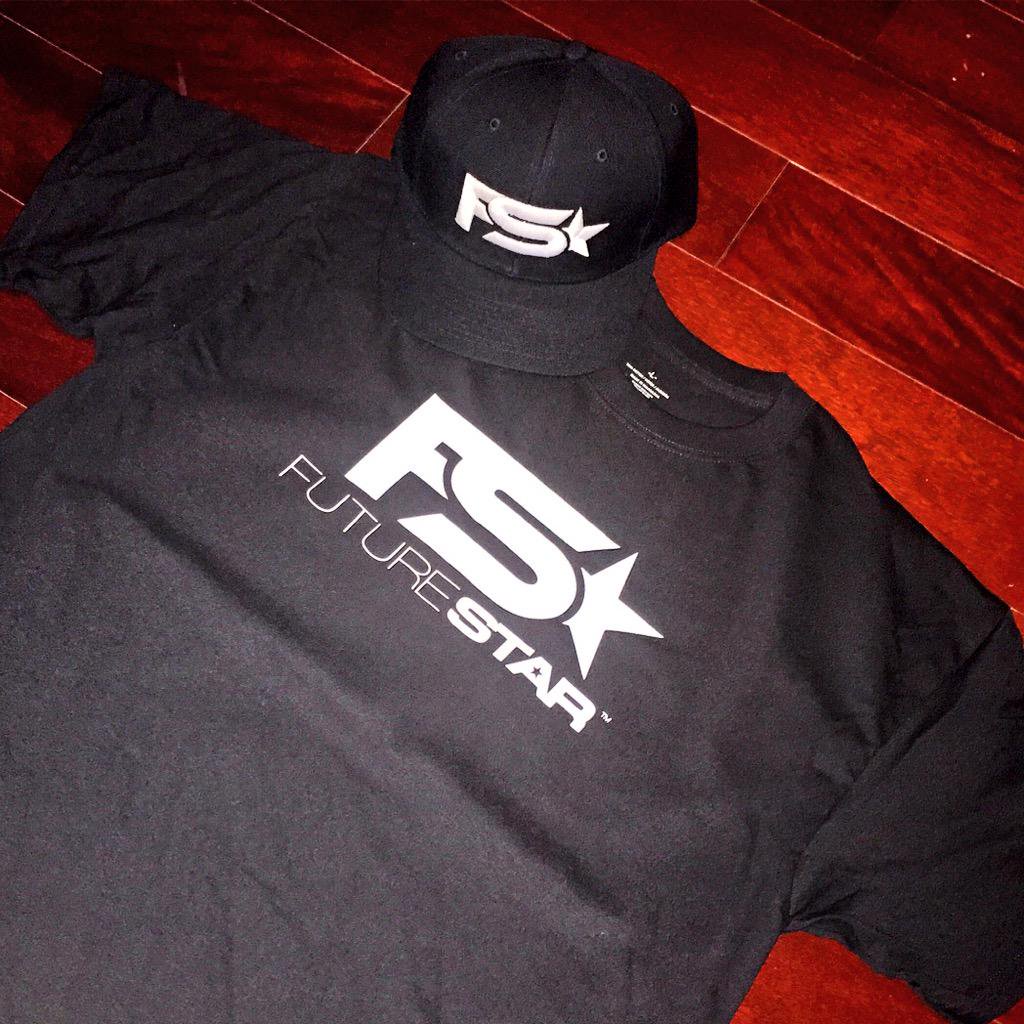
The way I got in touch with them was really all just based on my hustle. I was building relationships at that time and people were getting to know who I was. I would go to music conferences and different events, and network with people, and show my face. I was building a nice little network. Plus I would reach out to everybody and anybody I possibly could online through email, social media, friends resources, etc.
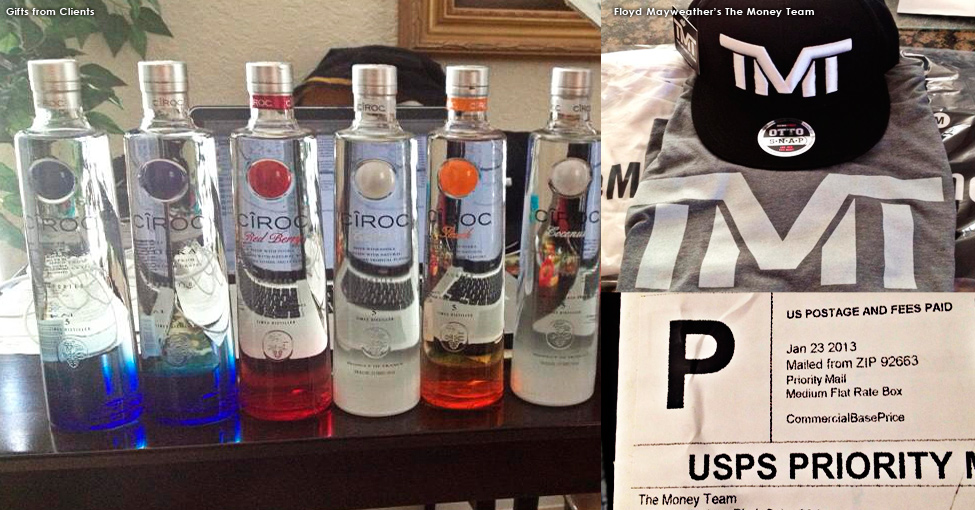
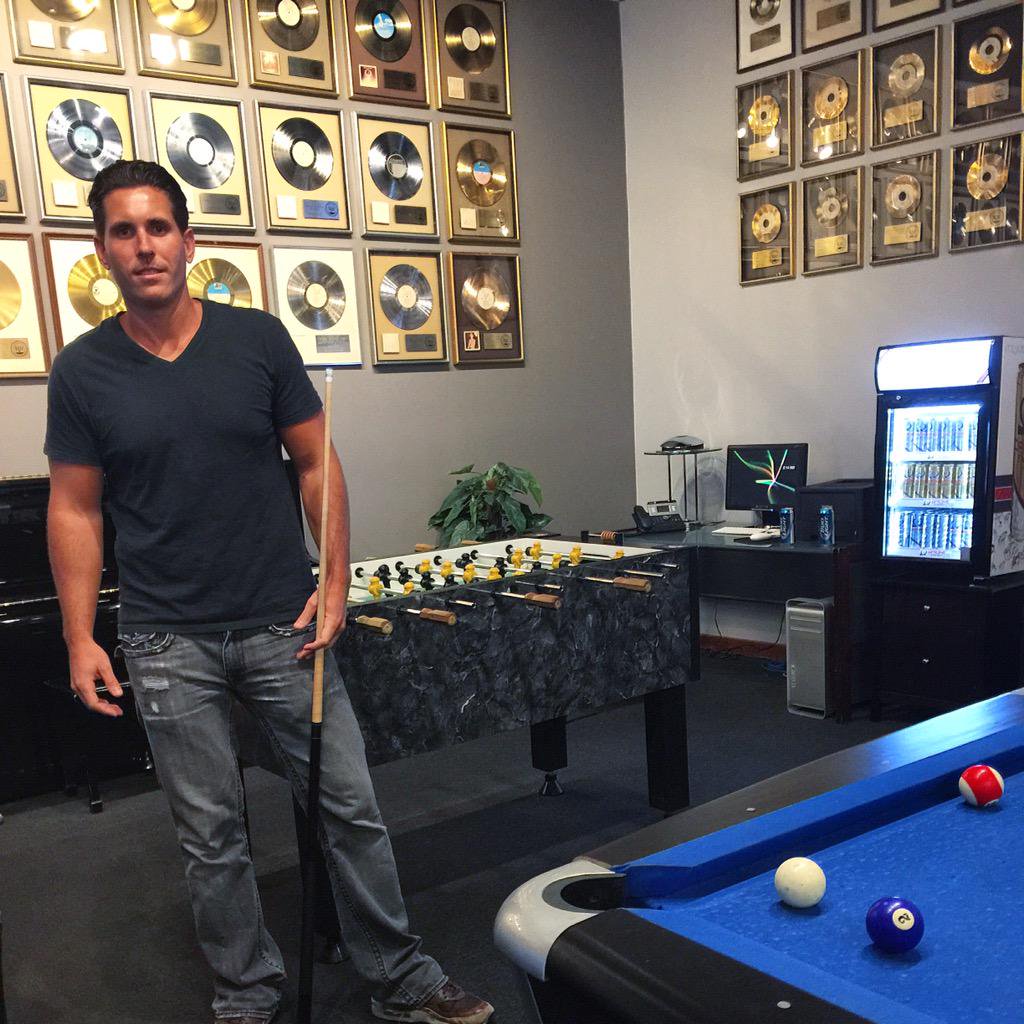
It always has been, but as long as you follow proper protocol and as long as there’s an unsubscribe link that people can remove themselves from if they want, then once they remove themselves, you can’t add them again. The email servers don’t let you so you have to be spam compliant so there’s none of those issues. Most of these people I just threw in there. People would send out an email and they wouldn’t blind copy their contacts so I’d take them and copy and paste them into my list so it would grow and the more contacts I have, the broader audience I have, and the more possibility to create opportunity to get business. It’s a pretty simple approach for me but no harm was done.
If somebody didn’t want emails, they could just unsubscribe from the email and keep it moving and not have to deal with it, but it definitely played in my favor for sure. It brought me a lot of business and a lot of clients and helped me to continue to grow and expand my brand value. Most importantly, it kept the Future Star name in front of everybody’s face because every time I’d send something out, they would see Future Star, Future Star, Future Star over and over again. It was something to help me really start branding the name to the point that it is.
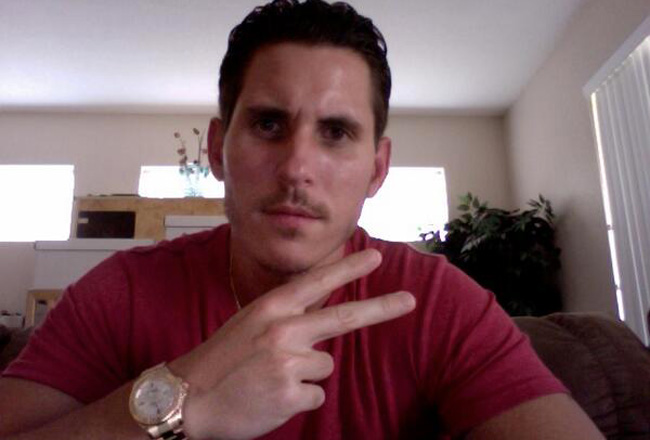
I wouldn’t really say there’s one specific break that I could think of. I would say it’s just consistency and persistence and determination that put me on the map. I have a “refuse to lose” mentality. I also helped blow up a couple of records that were big singles that ended up doing really well and Future Star was the first company to service them to the music industry. Back in 2006 I helped launch a lot of new songs from tons of major recording artists.
I also helped break a lot of new artists and introduce them to the world. Most recently, Juicy J’s song Bandz A Make Her Dance with Lil Wayne and 2 Chainz, is one of the biggest songs in the country. It’s almost platinum which is huge in this era and Future Star did the world premiere on that and did the email blast to all the DJs, media, and blogs to help launch that record. We also did Ray J’s new very controversial single “I Hit It First” and partnered with him on the launch of that record which charted on the Billboards. Not really one big break but just little breaks I think that all add it up into making it into one big picture.

It really is even to this day. I was doing anything I could to be honest with you. I would call offices 100 times a day. The secretaries would be like, “Such and such is not in the office anymore” and I was like, “No, he’s in the office, trust me. I saw that he replied to an email.” His reply might have been like unsubscribe me from your blast but I knew he was around because he wrote me back. I would just keep calling and calling. I would send packages. I would put envelopes together in the mail with a print out of services that my company offered and my contact information. I would physically mail them to all these offices in New York and LA. Once I figured out someone’s email at a record label, I would send them personal emails and say, “Hey George…” But a lot of it was just hustle to be honest. I would pretend like I knew people. I would say, “Hey I haven’t spoke to you in a while. I hope all is well since we last spoke.” I really just went for it like I figured I have nothing to lose. They are either going to ignore my email which if I don’t reach out to them anyway, they will never know who I am, or they might just roll with it and contact me, and then that opens the door for me to start building a relationship or at least to pursue other avenues.

I would just make them believe that I already had spoken with them before because like I said, there’s only two options: Either ignore me or reply to me and go with it because they might feel stupid by not answering because they are like, obviously this guy knows me if he is emailing me and he’s talking about things going on with my career so he must know me. I’ll make them feel awkward if they don’t reply. That’s really how I get it started and how I built relationships with everyone including the major record labels and a lot of the biggest artists that I still talk to, to this day frequently.
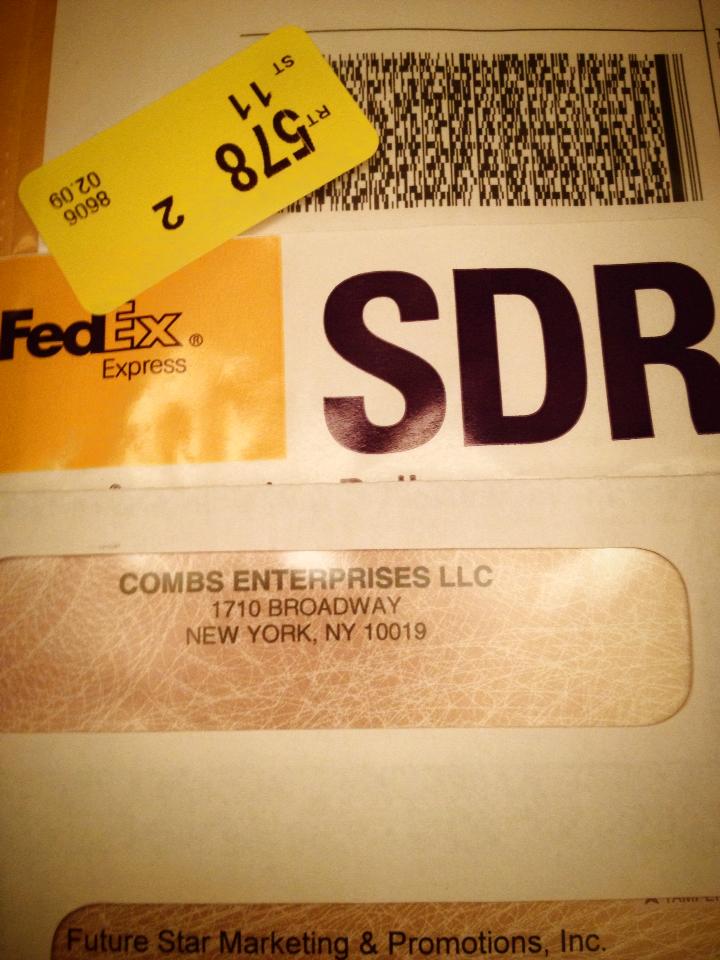
So first things first we determine what their needs are and most importantly, what their budget is because it would be ridiculous for me to sit there and put a package together for somebody that costs $7,000 if their budget was $500. I can’t tell you how many times that happens when people say, “What would you price us for this, this, and this? I’m like, “Just tell me what you can afford or what kind of budget you have to work with and then we’ll strategically plan a marketing campaign based on the services that we offer and what your budget allows.” Once we determine a budget, then we can go through services and decide, “Okay, they have a new single they want to get out and we can do the following to help.”

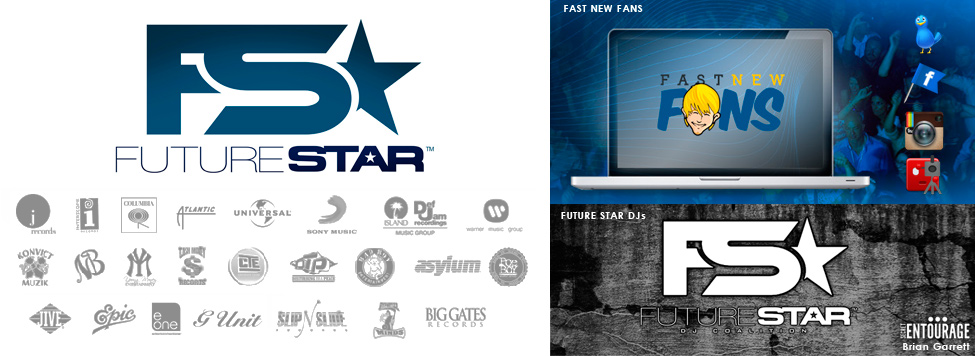

The best thing I can say is we help them with branding themselves and whatever it is that they are promoting at that time. Obviously, we also do all social network promotion too. Future Star does online media which we’ll talk about after but that’s kind of how my other company evolved because we were already doing social media marketing for a bunch of artists in the music industry. People that would come with a smaller budget or a new artist that wanted to gain exposure or have an online presence, they would hire us to do Twitter, Facebook, Instagram or YouTube services for them and boost up their numbers or their image to make them look they were bigger and more popular than reality.
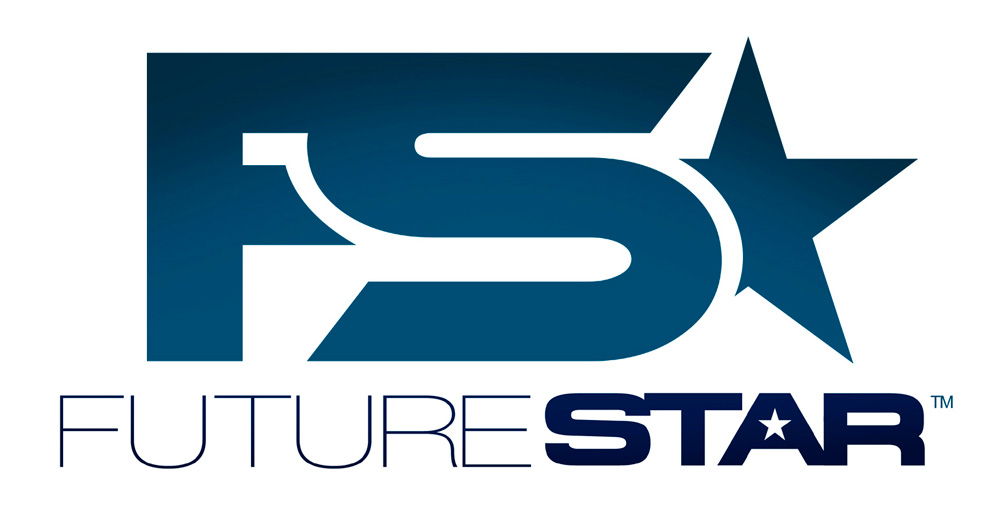
Of course and that’s a huge part of our clientele. That’s the benefit of the business. Artists in the music industry are always going to need marketing. It’s inevitable. It doesn’t matter if you’re an upcoming artist or you’re a major artist. No matter what, you’re still going to have a new song at some point, you’ll still going to put out a mixtape, you’ll still be putting out albums so no matter what, you’re going to need services and people to market them. Granted the bigger you are and with technologies these days, someone like a Chris Brown, Rihanna or Lady Gaga can go on Twitter and post a song and it’s going to start to spread organically on its own but they still need people like us and a team. These artists can’t do everything themselves so just sitting on Twitter posting a song isn’t going to make the song blow up. They still need people actively promoting it and working it behind the scenes to the industry side, the tastemakers in this business, to get things going and get the ball rolling. The clients are recurring so that’s the good thing. Although once you get them and as long as you provide great work, then you can usually retain the business.
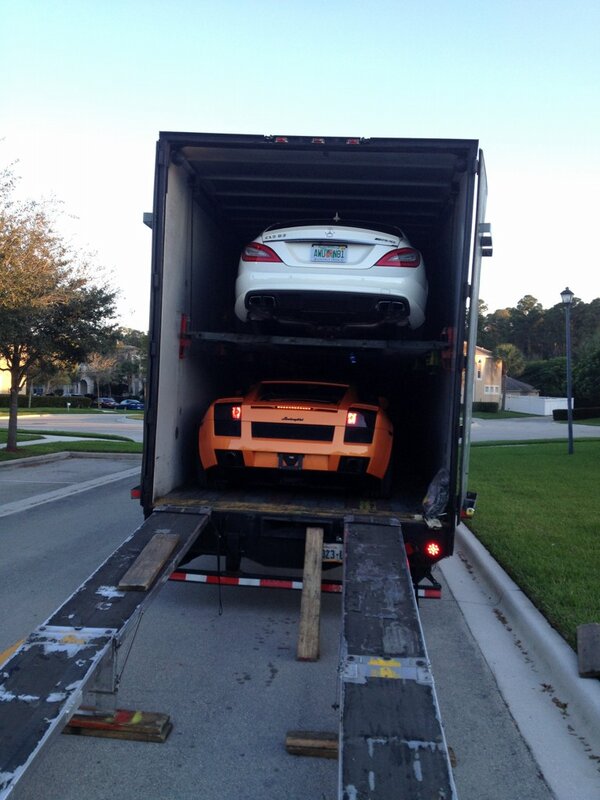
We try not to over saturate it at all. We’ll never send more than one a day usually. We didn’t even originally send emails every day. It’s really just based off of supply and demand on virtually whenever our clients pay us and what they need because I’m not sending stuff out for free. So many artists think they are stars and you’re going to do it for free because you’re a fan or something. That means nothing to me. I’m a business. I’m trying to make money. If they are not paying, I’m not sending. We do it as needed but people aren’t bothered by the fact that we continue to send them so much because that’s what we’re known for and what we’re branded as. That’s why people are going to us because they want that new music, they want those updates, those exclusive offers and songs, the different things like press releases, etc, so they expect it from us and if they don’t like it, they can hit the unsubscribe link and they never have to hear from us again.
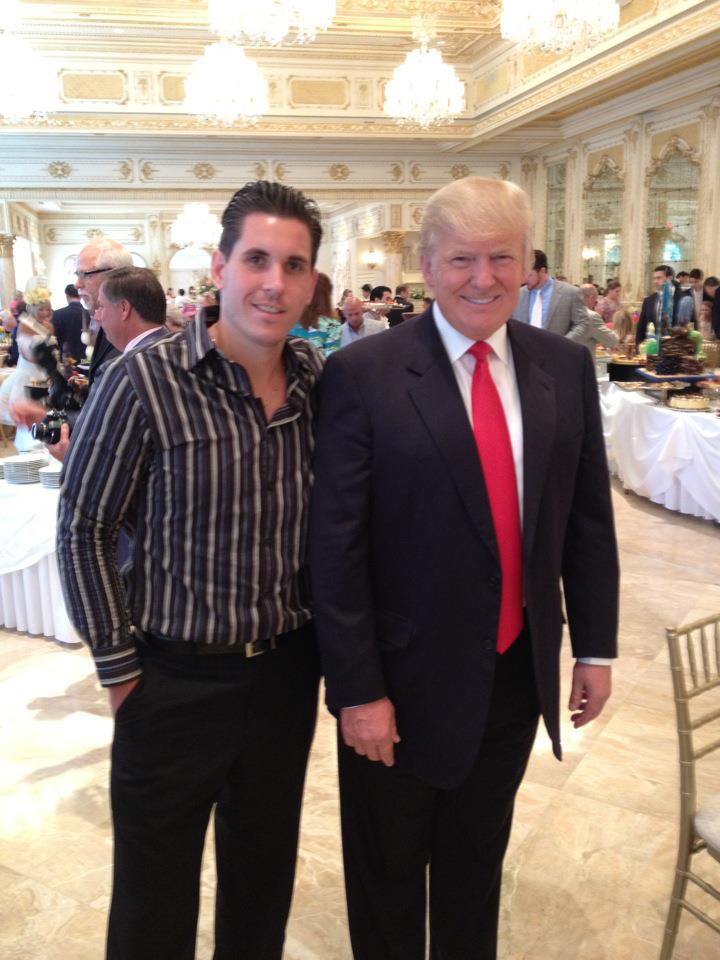
Future Star is the brand and there is going to be still expansion for that in several divisions. There’s Future Star Music which is a record label. There’s Future Star Marketing and Promotions which is what I use to do all the marketing stuff, the email blasts, all the consulting stuff, booking shows through, etc. There’s Future Star Management which is my management company that I just set up which I’ll be signing artists, songwriters, DJ’s, athletes and producers to and then there’s the Future Star DJs which is the DJ coalition. We currently have around 100 or so DJ’s. So, there are four subsidiaries to the Future Star brand at this time and that will constantly evolve and grow with time. I do also plan to expand into television and film within the Future Star umbrella as well in the near future. In fact, I’m working on some reality TV show concepts as we speak I’m excited about!
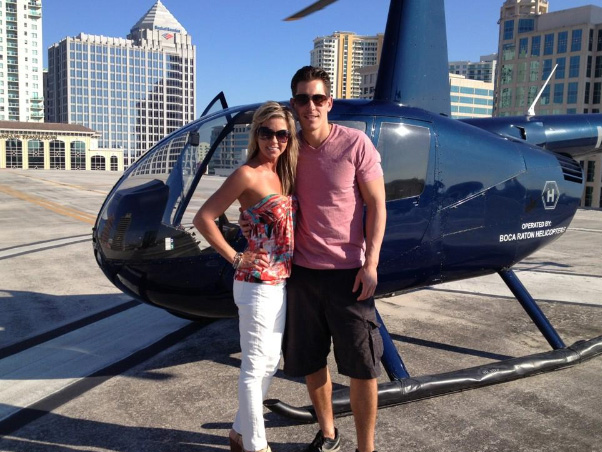
Earlier, this year, I created my new company, Fast New Fans, which is a social media marketing company specializing in Twitter, Facebook, YouTube, and Instagram services, and I did it on a more broader scale. I figured if all the artists love these services and they are already paying me for it through my Future Star company, I will just funnel all the work through this new company for my prior clients plus reach more customers. It made it easier for me because they can order directly from the site with the shopping cart and streamline everything to one place versus them having to contact me, tell me what they need, me having to go into PayPal and send a payment request etc so I just streamlined it all to one website they can go to.
I created Fast New Fans for two reasons. One, to streamline all the work I already had coming from this from Future Star to make it easier and two, to reach a new audience of people like restaurants, car dealerships, bars, clubs, or really any kind of corporate company or brand or athlete or anybody that needs to build their online image and boost their online presence to look more credible!
For example, if I come across a restaurant in Palm Beach on Facebook, I click their fan page and they have 71 likes and I click on another restaurant fan page and they have 2,000 likes, I’m going to think that restaurant is more popular because of more likes. I started to reach a different audience and I’m branding it now to more of a broader demographic than strictly new fans for the music industry and it has been great so far. Huge names use us in the entertainment world so I figured why not expand it. It’s 100% confidential because obviously, people don’t want you knowing that they boosted their numbers on their pages so I keep those confidential but I can tell you some of the biggest celebrities that you can even think of right now, there are a few that are using me and our services as well as tons of upcoming artists because image is everything.

I could care less because they clearly don’t understand marketing or branding. Perception becomes reality. People only believe what they physically see in front of them. If you come across an artist’s page and they have 150 Twitter followers and you come across another page and they have 15,000 Twitter followers, you’re obviously going to immediately be more interested in the person with more followers because you’re going to think they have more credibility, they have a bigger buzz and following. It’s a branding aspect. So with Future Star, I was doing these services for clients and artists and I saw how popular it was so as new social network services came about, I continued to offer those. For example, when Instagram came about I started doing Instagram followers.
I just want to address the people that think it’s shady, it’s fake, etc for a minute. These are the people that just have to understand we’re not trying to scam people or fool anybody. What we’re doing is building a base and a foundation for them to grow organically and naturally from there. Using the examples like I had said, if you come across a page that has more likes or more followers or a video on YouTube that has more views, it just piques more interest so the end user and the consumers automatically are going to have a piqued interest in that profile or that video because they would think it’s already bigger than it is. Perception is everything and image is everything.
We give it a jump start is how I want to look at it. That’s what we’re doing. We’re giving it a jump start and then it’s going to grow from there on it’s own naturally. We’re helping people just have a stronger look online and a stronger foundation to build from. It’s a huge success; it really is especially in today’s times, technology, and with these social media networks, so it’s a big market. It’s just an easy service to help people out and get that superstar image that they are looking for.

As far as Future Star goes, I’m a white guy in an urban music industry who hustles like no other. Probably 99.9% of aspiring artists, producers, or record labels fail so I’m blessed. The music industry is one of the most cutthroat, backstabbing businesses there is, and the entertainment business is in general. If there’s a will, there’s a way. You could hear a million NOs, but it only takes one yes to change your life, so I’ve just never taken no for an answer and I just continue to be persistent. Like I said, I think the key to success in any business really is communication and 95% of the deals that I close was due to me emailing them and me keeping in touch.

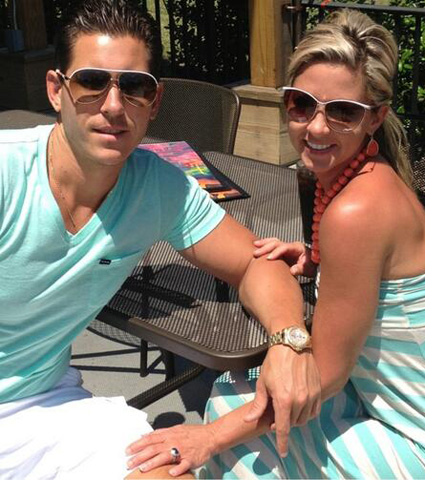
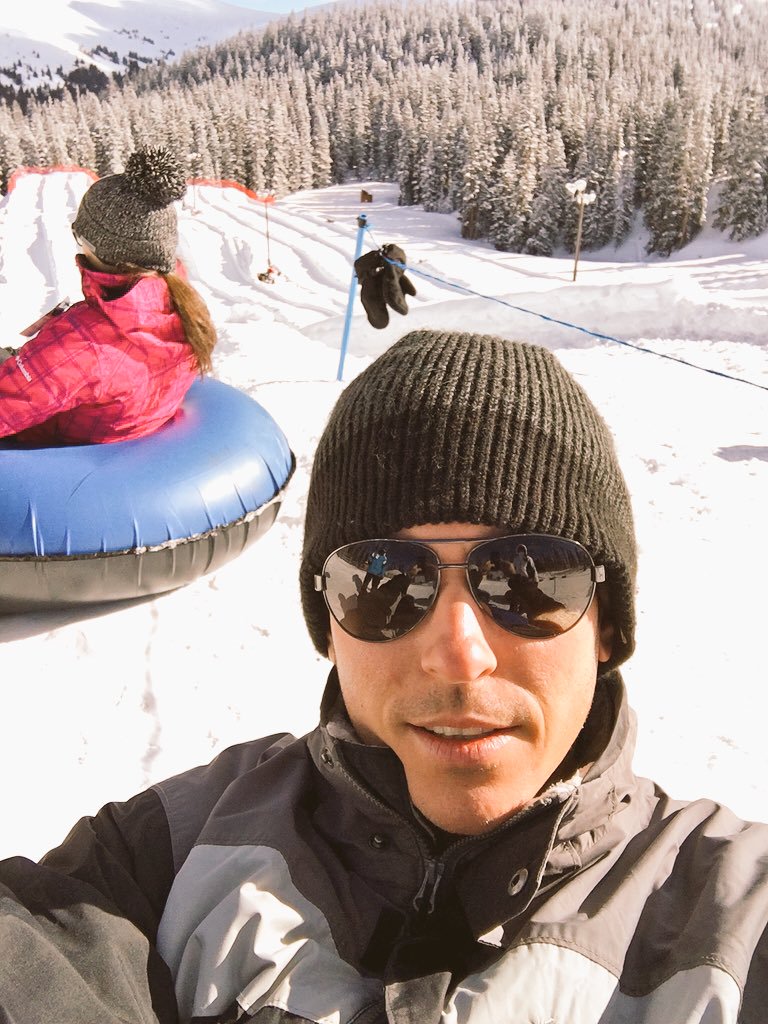
Now you see these kids creating social networks and selling them for 500 gazillion dollars. There are tons of opportunities out there especially the internet online world. The tech space is where it’s at these days. I’m just happy that I’ve been in it for a long time and I got some tricks up my sleeve to help me do bigger and better things.

What’s next for me is I’ve got several new companies that I’m working on outside of Future Star and Fast New Fans at the moment in all different areas of business actually. Majority of my stuff will always be online ventures and things within the tech space but I’m always working on different stuff and I’ve got a huge list of business ideas that I’m starting to dial in on and work on transforming them from an idea to a reality. Like I said, it’s all about the mindset. The key is just never bite off more than you can chew and a little bit of balance of everything because some people get over their head and they want to do this, this and this the next, and they never really get anything started or never really make any progress on their dream because they are all over the place and they don’t commit to it.
For me, it’s all about building the brand and then moving on to the next one. I would have never moved on to Fast New Fans if Future Star wasn’t already built and the foundation wasn’t there. Once it got to that point then I created Fast New Fans and started branding and building it which I’m still doing now. I’m also looking to invest into some other start ups and companies as well. You never want to throw all your eggs in one basket. If there’s opportunity, I’m going to go after it no matter what it is so I just keep my ears and eyes open and see what opens doors for me and go to them. That’s kind of where I’m at now but I do have some new businesses coming and like I said, they are in development now and as soon as they are ready to go, the world will know about them. I’m really, really excited about them!
